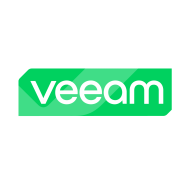

Microsoft System Center and Veeam Data Platform compete in IT management and data protection. Veeam seems to have the upper hand, offering comprehensive backup and recovery capabilities that are essential for data integrity.
Features: Microsoft System Center provides efficient antivirus administration, update automation, and integration with Microsoft Intune, ensuring a comprehensive management environment. Veeam Data Platform offers robust backup, replication, and instant recovery features, ensuring minimal downtime and data protection reliability.
Room for Improvement: Microsoft System Center could improve integration with non-Microsoft tools, update its UI for better user experience, and enhance cloud monitoring. Veeam can focus on improving scalability, enhance its cloud integration, develop more intuitive dashboards, and strengthen physical server backup.
Ease of Deployment and Customer Service: Both Microsoft System Center and Veeam Data Platform are predominantly used for on-premises deployments, with limited cloud options. Microsoft System Center users note variability in customer service responses. Veeam is appreciated for its straightforward deployment, although documentation and support services have improvement potential.
Pricing and ROI: Microsoft System Center is part of a comprehensive enterprise subscription that, while costly, offers significant ROI through operational cost savings. Veeam Data Platform's pricing is competitive, offering good value with its extensive backup features, particularly with packages like Veeam ONE.
As a partner, I cannot create a ticket directly; I have to involve the end user's email to create one, so using the Software Assurance ID to create a ticket directly is not possible, making it very challenging for me.
The escalation from first, second to third tier is sometimes very long-lasting, but the resolve rate is quite high.
I would rate their technical support a 10 out of 10.
Most cases are handled perfectly.
Microsoft System Center is scalable, allowing integration even if I have different sites.
Integration with other vendors is also seamless.
I would rate the scalability part of Veeam Data Platform 10 out of 10 because we have the ability to scale out the product at any time with scale-out backup repositories and can add licenses as needed.
In order to scale Veeam Data Platform, we have to pay a lot more money.
There are no issues with stability in Veeam Data Platform.
I can say the stability of Veeam Data Platform is almost 8 to 9, as the cluster functionality was not there in earlier platforms such as version 12, but is provided in version 13.
The disadvantage of Microsoft System Center is related to the many integrated services; if one service is failing, then all features will be affected.
The improvement we would like to see is the option to scale Veeam Data up in smaller sections rather than large sections, which requires paying much more.
OpenStack is something Veeam Data Platform doesn't support, and they haven't indicated that they will support it in the future.
Reducing it by 20% would make it more accessible to a broader range of customers.
I believe it is not expensive; it's the regular price.
Veeam Data Platform is more expensive than OpenStack because we pay for it in US dollars, while we pay for OpenStack in Egyptian pounds.
A reduction of 20% in the current cost would make the solution more attractive to clients.
In Microsoft System Center, all the features are integrated already, whereas in ManageEngine, you have to license each feature individually to access those features.
The platform is user-friendly, comprehensive, and compatible with numerous market solutions, including virtualization and bare metal servers.
The most important aspect of this platform is data security with immutable data in the storage.
Ransomware protection is a good feature added in Veeam Data Platform from version 12 onwards.
| Product | Market Share (%) |
|---|---|
| Veeam Data Platform | 1.0% |
| Microsoft System Center | 0.6% |
| Other | 98.4% |


| Company Size | Count |
|---|---|
| Small Business | 7 |
| Midsize Enterprise | 4 |
| Large Enterprise | 10 |
| Company Size | Count |
|---|---|
| Small Business | 216 |
| Midsize Enterprise | 99 |
| Large Enterprise | 139 |
Veeam Data Platform is a leader in data resilience, providing businesses with reliable and secure backup, recovery, and advanced data insights. It is designed to combat today's cyber threats while ensuring data remains protected, adaptable, and recoverable.
Engineered to offer a seamless and powerful data resilience experience, Veeam Data Platform helps organizations with intelligent protection beyond just backup. It enables orchestrated and verifiable recovery processes, helping maintain continuous operations. By offering integrated solutions against evolving cyber threats, this platform assures businesses of data availability and precision restoration, empowering them to remain resilient under any circumstances. Its robust security features, coupled with efficient replication and deduplication benefits, deliver confidence in data management across hybrid and cloud deployments.
What features make Veeam Data Platform stand out?Veeam Data Platform is primarily used for managing backup and replication across VMware and Hyper-V environments, supporting both cloud and on-premises infrastructures. In industries managing significant IT services, it assists in disaster recovery and virtual machine protection, enhancing business continuity. Its integration with applications like Microsoft Office 365 ensures reliable data protection and quick recovery, making it beneficial for those looking to streamline operations across diverse deployment scenarios.
We monitor all Cloud Monitoring Software reviews to prevent fraudulent reviews and keep review quality high. We do not post reviews by company employees or direct competitors. We validate each review for authenticity via cross-reference with LinkedIn, and personal follow-up with the reviewer when necessary.